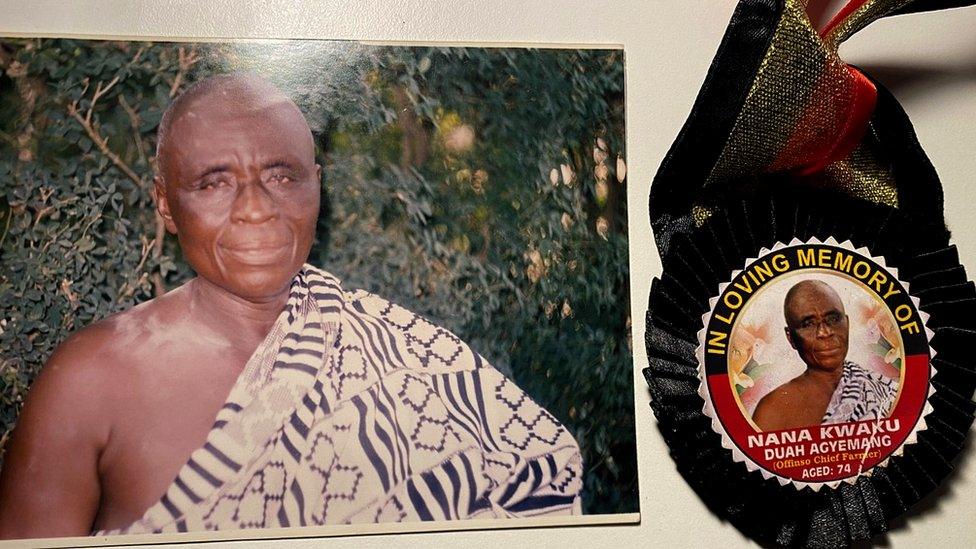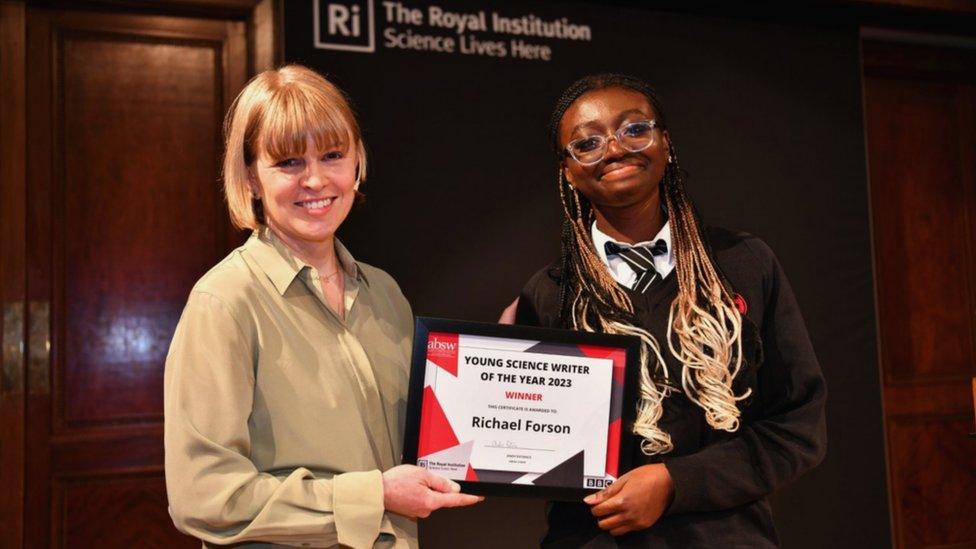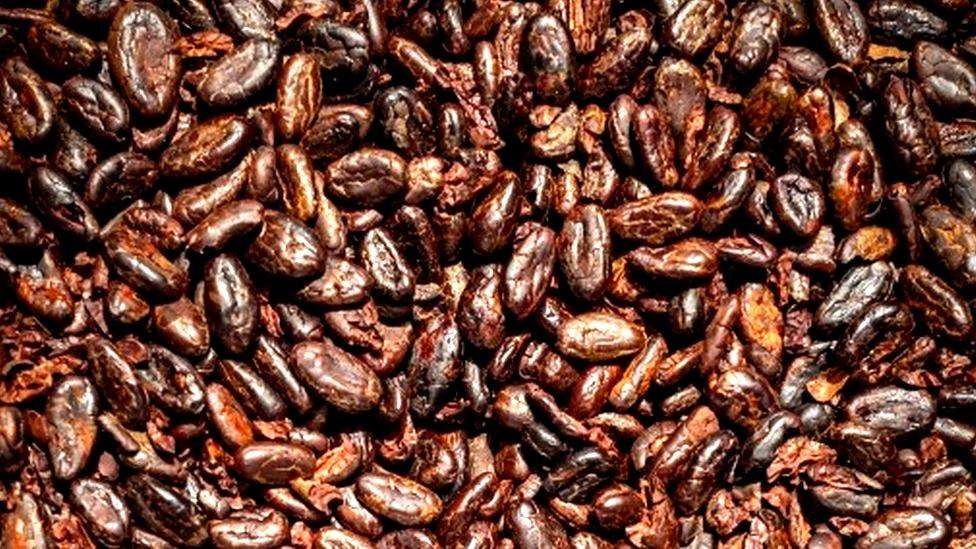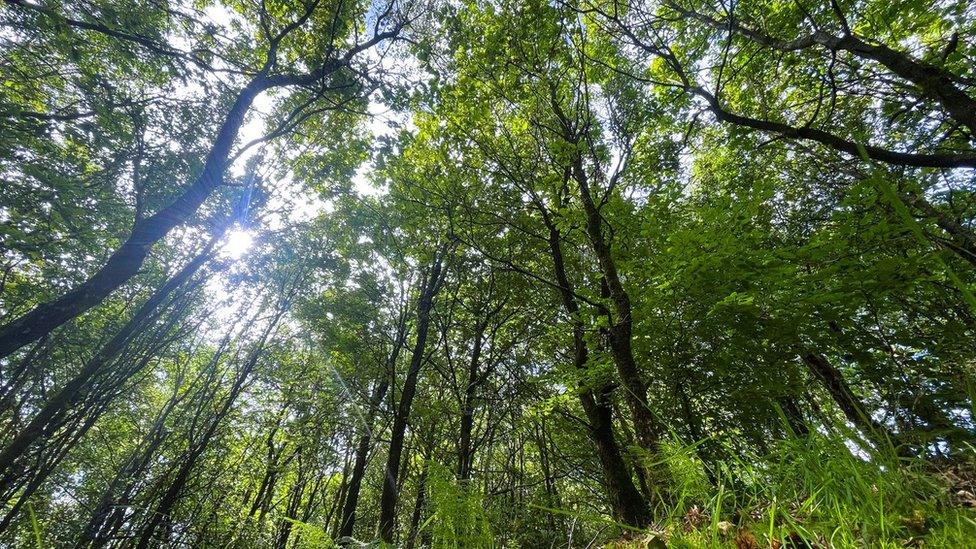Your chocolate bar - my family's struggle
- Published
In her award-winning essay, young British science writer Richael Forson delves into the human struggle and environmental crisis that her parents and grandparents faced in their efforts to grow cocoa on a small farm in Ghana. The 15-year-old winner of the 2023 Association of British Science Writers (ABSW) Young Science Writer of the Year award, external, who lives in London, wrote about how families like hers have fought through poverty, disease outbreaks and a changing climate in their effort to produce the key ingredient in our chocolate bars.

15 year-old Richael is winner of the 2023 Young Science Writer of the Year award
When I was growing up, I heard stories of the sights and sounds of cocoa farming from my mother, a woman who had lived in Kumasi, Ghana almost her entire life.
Mum inherited a small plantation from her father. She spent many hours helping my grandparents tend to the trees and harvest the cocoa pods - the raw ingredient that is eventually processed into the chocolate so many of us enjoy.
The more I heard, the more I understood the challenges my family had faced: Changing weather patterns; disease outbreaks and fluctuating market prices constantly threatened the farm. But despite the hardships, they poured passion and dedication into their work.
Cacao farming was more than just a job - it was a way of life. My family's story inspired me to advocate for the rights - and needs - of cocoa farmers in my family's country, Ghana.
Many of us enjoy chocolate as a treat, but for the people who grow cocoa beans - in countries like Ghana and the Ivory Coast - their lives revolve around it.
More than half of this cocoa is exported to European countries. Its export makes up a quarter of Ghana's foreign exchange earnings - second only to mineral exports.
More than two-thirds of the world's chocolate is made from cocoa grown in West Africa, and most of that comes from just two countries, the Ivory Coast and Ghana.
Cocoa climate crisis
Cocoa, the most important ingredient in chocolate, is not easy to grow. It requires high humidity, an abundance of rain, nitrogen-rich soil and a constant temperature.
Climate change is fuelling droughts and unstable weather conditions - the opposite of what cocoa plantations need.
Because of this, farmers in West Africa are moving - forced by depleted soils and unfavourable conditions to cultivate new areas. This is a driver of illegal deforestation in both Ghana and the Ivory Coast.
It is a vicious and unforgiving cycle as forests make way for new farms, which fuels further climate disruption.
And cocoa farming is already challenging. Farmers are constantly fighting pests and diseases - like pod rots and ants that eat their fruit. Black pod, or pod rot, caused by the fungus Phytophthora palmivora further impacts cocoa yields.
The disease results in the loss of 20-30% of cocoa pods pods and kills about 10% of the trees every year. This is especially devastating, as to grow one cocoa tree takes about five years from the seed. And losing a single tree means losing 30-40 cocoa pods at once.
All of this is a challenge to the long-term viability - and sustainability - of cocoa farming.
But while cocoa production contributes to environmental degradation, the livelihoods of many farmers and their families depend on it. We need to find sustainable and ethical solutions that support both the environment and the cocoa farmers.
My grandfather, Nana Kwaku Duah, was one of those farmers. He worked hard to improve his own life and the sustainability of his farms. He supported sustainable and economically friendly farming practices, trying to reduce the use of some harmful fertilisers and pesticides.

A photograph of Richeal's grandfather displayed on the wall in her family's home
Nana Kwaku Duah was not only my grandfather, he was also a chief farmer in the Ashanti region. He advocated for the rights of the cocoa farmers and workers.
Cocoa farming doesn't just supply us with the chocolate many of us crave, it is a crucial industry that supports the livelihoods of millions of people - people like my parents and grandparents.
It is also an industry that faces many challenges and I hope my story can raise awareness about this issue.

The BBC's Victoria Gill presented Richael with her award at the Royal Institution earlier this year
Richael is from Eastlea Community School. The ABSW Young Science Writer of the Year award invites students aged 14-16 years, to submit an 800-word essay. The competition, supported by BBC News and The Royal Institution, is designed to get young people writing and thinking about the big questions in science, technology, engineering and/or mathematics.
- Published24 February 2020

- Published19 June 2022
